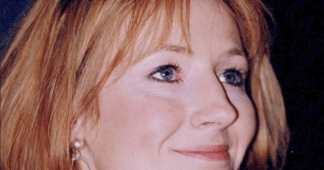Rape and sexual abuse of vulnerable care home patients is rife. Change in culture, policy and the introduction of proper oversight are urgently needed, writes Dr EM
Jan 7, 2022
ABUSE is prevalent in residential care settings, mental health wards and where vulnerable individuals require care in their homes.
Vulnerable women don’t stand a chance in a system which enables predators and looks the other way.
The problem of men using care careers in order to access and rape vulnerable women is so widespread that the Westminster government recognises it specifically in sexual offences legislation.
Sections 38 to 41 of the Sexual Offences Act 2003 outline how it is illegal for a carer to engage in sexual activity with a person who has a mental disorder, to incite a person with a mental disorder to engage in sexual activity and to cause a person with a mental disorder to watch a sexual act. Penetration of a woman with a mental disorder, her vagina, mouth or anus, with the carer’s penis carries a prison term of 14 years upon conviction.
Continuing the practice of allowing male carers unsupervised access to female patients is being deliberately blind to evidence of a pattern of risk. Not all men, but it is enough, and we must safeguard vulnerable women. The alternative is to say the potential sexual abuse of women is acceptable to placate the feelings of men.
Government statistics show that males commit 98 per cent of all sexual offences. Government figures for the three years ending March 2018 suggest “3.7 per cent of disabled adults aged 16 to 59 years experienced any sexual assault (including attempts), compared with 1.9 per cent of non-disabled adults.”
The government extrapolated from this data that “in the three years ending March 2018, disabled women were almost twice as likely to have experienced any sexual assault in the last year (5.7 per cent) than non-disabled women (3.0 per cent).”
Another study conducted in Australia found that as many as 62 per cent of women with disabilities under the age of 50 had experienced violence since the age of 15, and women with disabilities had experienced sexual violence at three times the rate of those without disabilities.
Building on academic research, The People’s Law School, based in Vancouver, warns that “most people with disabilities will experience some form of sexual assault or abuse” and that “people who have some level of intellectual impairment are at the highest risk of abuse.”
Abuse is under-reported and only the worst instances tend to draw attention. People with disabilities are often forced to live in institutions away from public scrutiny without access to police, support services or advocates. These private institutions put profits over people and are financially incentivised to cover up abuse.
The statistics only scratch the surface as we know much sexual abuse is hidden and men often target non-verbal, or victims who are likely to not be believed.
Furthermore, if you need help from a carer to communicate or arrange a police visit, do you think the carer who is raping you will assist in that?
Sometimes men will target dying women who are incapacitated through end-of-life pain medication and the families are too traumatised to report the incidents.
Pregnancies in incapacitated or intellectually disabled cared for women bring much of the hidden abuse to light and make the problem undeniable.
In February 2020 Edson Munyikwa was jailed for 15 years for raping and impregnating a severely disabled woman he was providing respite care to.
The woman was unable to communicate verbally and has the mental age of a toddler. She suffers from a range of serious disabilities, including brain damage, epilepsy and autism.
Other care home staff tested her blood in order to try to ascertain why her epileptic fits were increasing and discovered she was pregnant.
She then had to undergo a surgical abortion, with a DNA test on the foetus proving that Munyikwa was the father.
In a statement, her family said she was targeted because of her vulnerability and her inability to communicate.
“We find it increasingly difficult to come to terms with the fact that another professional body has caused indescribable distress to a vulnerable young woman,” they said.
Yet families should not have to request single-sex care for vulnerable women — it should be standard.
If those in power cared about disabled women, this wouldn’t be a repeated and ongoing problem. Treating it as an issue of “occasional bad apples” is ignoring the pattern and the problem.
Councils too often ignore families’ requests for female-only care and are willing to place vulnerable women in care homes rated “inadequate.”
In one such case in Birmingham in 2019, 90-year-old Dorothy Close, who suffered from Parkinson’s disease, was taken to Ivy House care home against her family’s wishes because council and NHS hospital staff wanted to free up her hospital bed.
Within days of arriving, she became agitated and disclosed that a male care worker was sexually abusing her.
Police were called in to investigate but there was not enough evidence to go to court, and the NHS trust involved called off its own probe.
Holly, Dorothy’s granddaughter, claims that “after they reported the incident, little was done by the care home or the council. In the immediacy, absolutely nothing happened,” she said.
“We informed the out-of-hours social work team and they advised the care home to suspend the staff. What they actually did was move them onto another unit within the same home so they didn’t have contact with my nan. [But] I … found when I went to visit my nan the following day that the same members of staff were actually on duty with her.”
Despite Dorothy’s family fighting for her and subsequently the other residents “the council decided to close the safeguarding inquiry, and said Ivy House should consider as part of its improvement plan what it should do when a resident did not want male carers for personal care.
“A manager from the council recorded that there was no evidence to confirm the abuse took place, so it could not determine that the male carers were a risk to anyone else.”
This is a common cycle of justification for ignoring the abuse of the vulnerable and disabled. Male perpetrators target the vulnerable who may not be believed or listened to, little physical evidence is left or collected, the police refuse to continue an inquiry, investigations are closed and the perpetrator moves to a new care home to continue to abuse.
The lack of convictions is then cited to argue that male carers pose no risk to female patients or residents.
The rape and sexual abuse of vulnerable patients receiving care is rife. Between March and May 2018 hundreds of elderly and vulnerable social care residents have allegedly been sexually assaulted in just three months, a shock report from the care regulator revealed.
According to the Care Quality Commission (CQC), there were 899 sexual incidents reported by social care homes between March and May 2018. Almost half were categorised as sexual assault.
In September 2018 Mark Cox was jailed for five months for attempting to masturbate on an elderly woman living in a care facility due to dementia.
Another female carer, suspicious of Cox’s late entry into the patient’s room, disturbed him while he had his penis in his hand and had pulled the victim’s nightdress up above her incontinence pad and undone the two straps that hold it in place to expose the victim’s genitals. She reported what she found to the manager and the police leading to the conviction of Cox.
As well as other staff reporting patient abuse, hidden cameras are enabling more assaults to be detected and proven. For example, in November 2020 Benjamin Poole was recorded assaulting a woman in her twenties in a care home while she was having an epileptic seizure on a hidden camera that she had installed.
She had installed the hidden camera as she had been waking from epileptic fits and recalling being sexually touched.
After one such fit “when she came round from the seizures, she viewed the footage from the camera via her phone and was horrified to see Poole committing a number of sexual assaults on her over a period of 23 minutes while she was having the seizures.”
Poole was sentenced to six years in prison. In 2021, 21-year-old Dylan Birkett who worked in a Cumbrian care home was jailed for two years after he was caught on a hidden camera sexually assaulting a vulnerable resident with dementia on Christmas Day.
He had been repeatedly physically and sexually abusing the 69-year-old woman as the hidden camera had been set up by her husband in an attempt to understand why she was frequently agitated and distressed.
Very little training and qualifications are involved in initially becoming a care assistant in a care home, making the access to the vulnerable easier.
Low pay, low status and difficult working conditions have meant that the care industry is struggling to attract and retain dedicated care staff.
Bullying environments are developing as staff feel demoralised. Chronic understaffing is putting patients at risk of abuse. The industry has been in crisis for years, in fact since it was turned into an industry through privatisation.
None of what I am saying is new.
“Anyone who bothers to look into it cannot fail to realise that the sexual abuse of elderly people in care homes is horribly prevalent,” said Ginny Jenkin, director of Action for Elder Abuse, whose helpline has received around 160 calls from frantic families and care homes since 1997 concerning extreme sexual abuse in care homes, a figure she says grossly under-represents the true level of the abuse taking place.
As Jenkin stated: “People find it hard to understand why anyone would want to abuse an old person, but someone suffering some mental and physical frailty is the perfect victim: they can’t defend themselves, they can’t get away, and if they’re able to communicate they’re probably not believed. What more could any abuser want?”
As early as 2001 Jackie Pritchard, a specialist in this kind of abuse, had already “been battling against scepticism and apathy for more than 15 years.”
“This sort of abuse is endemic in all but the best care homes,” she said. “The whole spectrum of abuse, from inappropriate touching to rape, takes place in exactly the same way as child abuse took place in days gone past: there is exactly the same targeting of homes, the same grooming of particularly vulnerable victims, and the same patterns of mobility and planning in the abusers.
“It’s a massive scandal just waiting to break. All we need is the government funding to prove it’s as bad as we know it is.”
The sexual abuse of these women, and sometimes vulnerable men, is only getting attention and addressed when family members fight for them or good people in the care sector whistleblow.
Imagine all the vulnerable women who don’t have relatives who will champion their cause, or all the rapes and sexual assaults that don’t result in pregnancy to provide clear evidence of a crime.
All the incidents which haven’t been stopped by a good carer who happened to be suspicious of their colleague. All the abuse that isn’t captured on hidden cameras.
Male perpetrators, if suspicion is raised, are often not convicted and just move to a new home to continue their abuse. The problem is shuffled around and never addressed.
A member of the CQC publicly stated that he didn’t find the sexual abuse of vulnerable residents serious enough to prosecute. Without a change in culture, policy change and proper oversight from the CQC good carers, nurses, doctors and families of vulnerable and disabled adults are fighting an uphill and losing battle.
Dr Em is a disabled feminist writer.
Published at morningstaronline.co.uk
We remind our readers that publication of articles on our site does not mean that we agree with what is written. Our policy is to publish anything which we consider of interest, so as to assist our readers in forming their opinions. Sometimes we even publish articles with which we totally disagree, since we believe it is important for our readers to be informed on as wide a spectrum of views as possible.











